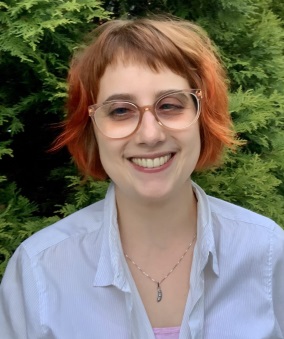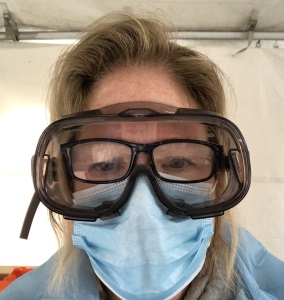Wayne State public health social workers tackle health inequalities and improve the lives of Detroiters during the COVID-19 pandemic
As the COVID-19 pandemic continues to unfold, it has become apparent that health disparities continue to exist and negatively affect the infection rate of many Michiganders. Faculty and students from the Master of Social Work and Master of Public Health (MSW/MPH) joint degree program at Wayne State University (WSU) understand how environmental, economic, social and personal factors influence health and wellbeing and are working to empower change in the Detroit community during this global crisis.
The Centers for Disease Control and Prevention (CDC) noted some striking statistics for African Americans in Michigan in its March 1-30 Morbidity and Mortality Weekly Report. According to the CDC, although African Americans make up 14 percent of the population in Michigan, they account for over 40 percent of the COVID-19 deaths in the state. Addressing social and behavioral determinants of health and health inequities is the cornerstone of the MSW/MPH joint degree program. Housed in the WSU School of Social Work, this program is designed to train the next generation of public health social workers to seek answers and create solutions for those effected by such inequalities.
Building on the natural overlap between public health and social work, the MSW/MPH program strengthens and deepens the knowledge base necessary to address health disparities, urban health challenges, and equip students with the skills for employment that demands the integration of prevention, research, and social epidemiological methods. Program Director and Associate Professor, Kim Jaffee, PhD leads students through a rigorous learning experience laced with interprofessional urban field training designed to provide graduates with the knowledge and skill to utilize community-based interventions to assist in the development of sensitive and need-based public health and social welfare policies.

MSW/MPH student Florentine Friedrich, has transitioned her knowledge from the classroom to the community with her recent participation in COVID-19 volunteer opportunities via Make Your Date Detroit and Detroit Meals on Wheels. As a part of the COVID-19 response team for Make Your Date Detroit, a free program to help pregnant women ensure a safe delivery, Friedrich conducted twice-weekly check-in calls with area pregnant women connecting them with resources and ensuring they received support necessary to deliver healthy full-term babies. "I think the one thing that has become very clear to me doing these phone calls, is that we should keep those in mind who are quite isolated and alone at this time. It's so important for us to stay connected with people who are going through this pandemic on their own," noted Friedrich. "A lot of the people I talked to live alone and were just happy to speak with someone, regardless of the service. The importance of staying connected with others might seem obvious, but that doesn't make it any less important."
While volunteering with Detroit Meals on Wheels as part of her off-site field placement Friedrich worked to assist Detroiters in need with enrollment in a temporary emergency food service established during the COVID-19 crisis. "Supporting vulnerable populations is a primary objective for both social work and public health. We are in a health crisis right now, and programs such as Meals on Wheels and Make Your Date are concerned with both responding to a public health issue as well as connecting individuals to resources through social work," stated Friedrich. "The MSW/MPH program has provided me with the skills necessary to reach out to vulnerable populations who may lack resources and the access to obtain these resources during this challenging time."

As of late May, the CDC reported that 60,000 health care workers had been infected, and close to 300 had died from Covid-19. Early in the pandemic testing was delayed. Concerned that first responders and health care workers were not able to get tested prompted Jaffee to assist those impacted by COVID-19 to volunteer at one of the early COVID-19 testing sites in Detroit for first responders and health care providers experiencing symptoms. From March 20-23, volunteers from the WSU Physician Group, WSU Health Sciences and ACCESS provided drive-up testing for over 865 health care workers and first responders in the Detroit area. "As the Director of a program that trains public health social workers I felt a need to engage in volunteer work that used a community-based intervention such as testing for COVID-19, especially for our front-line workers and first responders," noted Jaffee. "Those seeking testing were so relieved to know that they would be able to get confirmation on whether or not they had COVID-19."
Learn more about the impact you can have on your community with an MSW/MPH joint degree from Detroit's Social Work School.